What Do Houston City Council Members Actually Do? An Interview with Tiffany Thomas, District F
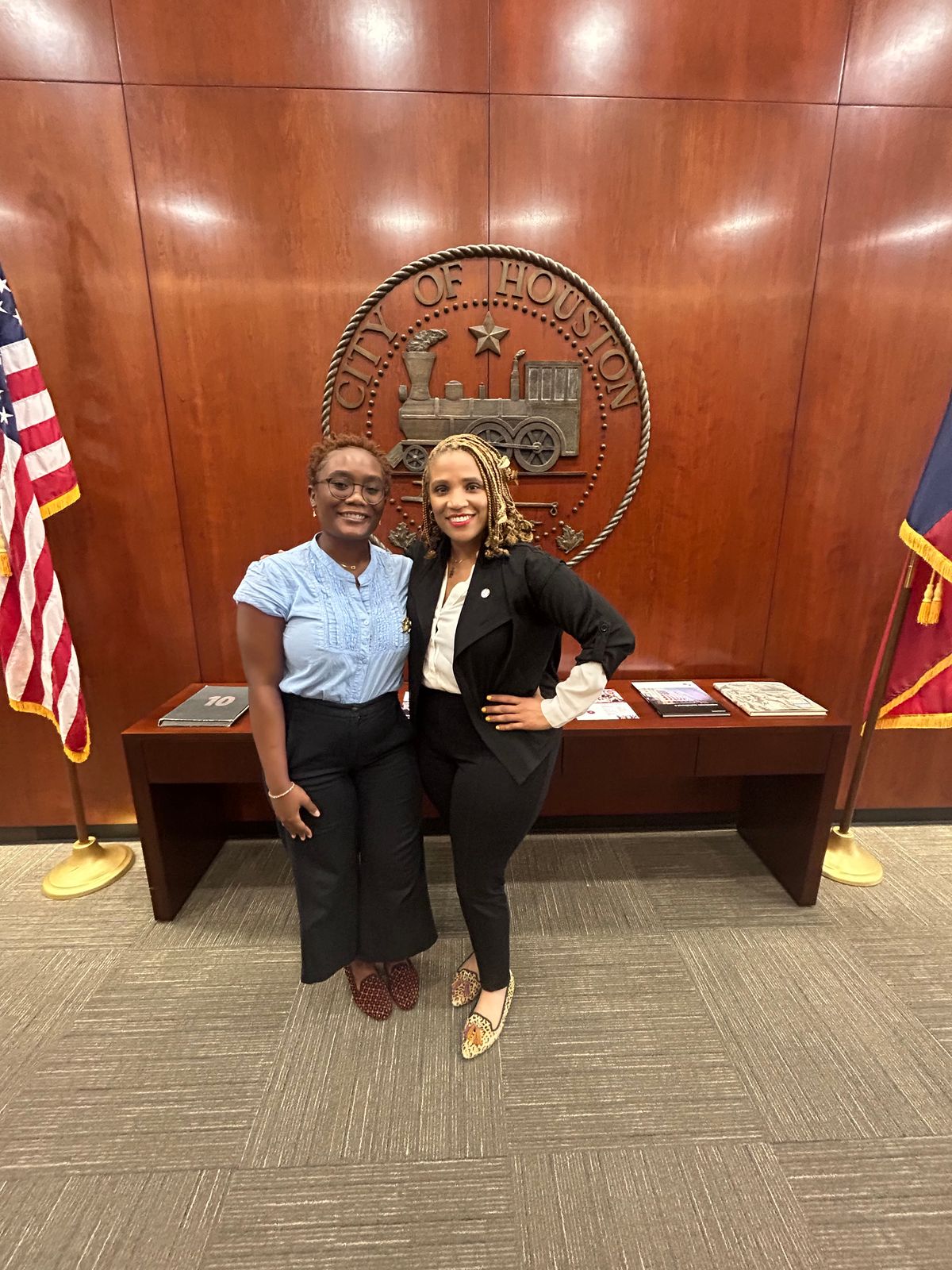
Houston city council elections are coming up on November 7, but they aren't getting nearly as much press as the mayoral race. That's no surprise, but council members are empowered to make important decisions too. It's worth learning what the job entails.
After experiencing part of a day in the life of a council member, reporter Kace' Conaway sat down with Council Member Tiffany D. Thomas to question her about her job. Thomas represents District F, including Alief and the Chinatown section of Sharpstown. Thomas is also a professor of Community Development at Prairie View A&M.
Q: How do you balance your day, especially since this is only your part-time job?
A: I don’t think there’s a such thing as balance. It's just how you make it harmonious…which means you can't make everything, which means you have to prioritize…
My core obligation is to constituents first, so I make decisions based on that. As council members, we are often invited to all types of stuff… If I have competing interests, I’m going to default to constituents. That may mean going to an HOA that has ten people there and declining the gala, declining the big luncheon with the speaker, because at the end of the day I live in that neighborhood, and I want to make sure that if I can respond to their need—which may be “Why is solid waste delayed? Can we get our sidewalk fixed?”—to me, that’s the better use of my time…
Every week on Sundays, I download to [my staff] my priorities of the week. There may be something that has happened in the news cycle that has…shifted our direction. Most recently the HISD/TEA, [so I’m] thinking about, “What does this mean for our HISD schools in terms of partnership, in terms of relationships that we’ve already established? As a former trustee [in Alief ISD], what’s my public position on that?” So then that means my communications team has to get ready to start pulling some things together. My Chief of Staff has to start reading so we can brief on “Okay, what does this really mean?” So it changes every week. I tell them, “Hey, this is what I’m looking for, those are my key things,” and I’m looking for execution or an initiation of those items.
Q: How do you represent the needs of your constituents?
A: I average about 341 3-1-1 calls a week. In District F we’re averaging about 16,000 a year. [3-1-1 is Houston’s call center for reporting non-emergency issues like water leaks, streets in need of repair, and missed trash pickups.]
Every week I look at the top five constituent concerns by zip code and percentage. I go over that every week with my staff, which allows me to pulse check what’s really happening.
There are two different worlds. There’s the world that happens down here at City Hall, which is a vortex, and then there’s the world that people are experiencing in their neighborhoods. So you have to be really connected to that. Someone could easily say, “Oh, you know, you should be focusing on…,” when I’m looking at 3-1-1 and what’s been documented: the data tells me it’s water leaks, it’s traffic signals, it’s solid waste delay…or it’s sewage backup.
So then, that information informs a couple of things: my conversation with the administration, my conversation with certain departments. And if I’m noticing a trend, I often put out callouts in my newsletter, like, “Hey, I’ve received three too many emails about homeless encampments. Do you notice homeless encampments? If so, send me an email and a photo, and let me know where that’s at so we can get started.” That’s how I know people are reading my newsletter… A lot of the needs that I’m responding to are driven by people's responses, which keeps me really anchored.
Q: What committees are you on and what do they do?
A: I chair The Housing and Community Affairs Committee for the city. Under that committee falls housing, homelessness, and veteran affairs. That’s a very significant committee, especially since Houston’s had seven federally declared disasters, Harvey and Texas Winter Storm Uri being two of those. So when I was sworn in in 2020 and Mayor Turner made me chair, at first I was like, “What did I do to him?...” But because I teach community development in my work, he knew I would be the best fit for that as a junior member chairing a very serious committee.
So within that committee, we are working through and reviewing items related to disaster recovery, multi-family developments, single-family developments. We crafted the rent relief program that 72,000 Houstonians benefited from. The legal support came out of that committee…
We also review our homeless encampment strategy. For the first time in the city's history, we have an encampment strategy, a map of how we’re going to address this. We are averaging around maybe 3,200 unhoused Houstonians in the city, unlike our sister cities, like LA, where they’re looking at 47,000. So we have some big wins in terms of getting them stabilized…
Many of the people that are on the street, they were on the edge…during Harvey. They had limited income and it just takes a disaster, it just takes getting flooded out, it just takes your hours being cut, it just takes a medical crisis, it takes the stress of a pandemic—that’s all it takes for someone to [fall] off the edge. They’re coming from family networks where they don't have a wealthy family to stabilize them…
In the city of Houston, we are pioneering what stabilizing unhoused folks looks like. The mayors from LA and Chicago actually were here last week and did a tour of our Navigation Center. Because they’re asking the same question: “We need to do something in Chicago,” “We need to do something in LA,” and they want to see how we’re doing it.
Q: What is the Navigation Center?
A: October of 2022, we passed an item on the North side (District B), a Navigation Center, which would be a temporary holding area to stabilize folks. So let's say we have an encampment under the freeway. We decommission that encampment. We have roughly a hundred beds over there where those individuals will be placed… Then case managers will be on site...
So our model is housing first in this city. And then we wrap around that housing first with case management and non-profit agencies, and then once we’re able to get you scaled up, cleaned up, clothed up, medicated up—whatever we need to do—then we can transition you to permanent supportive housing.
I will tell you, when that item came up, we had a lot of pushback from people in that community... Many of the concerns people have are similar to what people have around affordable housing. “Those people”—it’s interesting to hear the language—“why do we have to have those people in our neighborhood?” But the alternative would be that we see ourselves in the story of our neighbors. It could be one of our uncles.
I had an uncle who was a veteran and battled addiction and was unstable at times, and we couldn’t do anything for him sitting on our couch. But if he had a Navigation Center…I wonder if the last few years of his life would have been more pleasant…
I think we have to do a better job to communicate to residents that “these people,” “those people,” are someone's brother, son, daughter, aunt—and you know, “But for the grace of God, there go I.”
Q: Could you share more of the pressing issues you’re facing and how you are tackling them?
A: Well, there’s not one; there’s multiple. There’s always something consistently happening…I represent a quarter of a million people in district F, a very compact, yet geographically distinct district. So I go as far west as Highway 99 and I-10 and Fry, my north is Westheimer, my east is Hillcroft all the way to 59 Stafford, and they’re distinctly different... No one community…has the same issue, and you never want them to say, “You’re spending more time, you’re doing all that for Westchase, and what about us?”…
The second thing is being well-versed and prepared for city-wide conversations: city budget, public safety… So for district members, we don’t have the luxury of being single-issue focused. We have to be multi-issue focused and then also execute with our funding…
A big thing for me is making sure that the resources in the zip codes I represent are there. So when I’m looking at agenda items, and it says “all districts” next to it because the item is supposed to benefit all districts, then I’m looking for the map of the zip codes and the data that shows me where that work has happened in District F, because I want to be able to say, “We too, have capital improvement projects…,” and when I don’t see that, that’s when I raise the question.
One thing that’s big for me is jobs. There are some zip codes in District F that, at a point in time, had higher unemployment rates than the national average, particularly from 18-30… In the city you’ll hear a lot around literacy for young people, but I’m more interested in adult education, because schools, they have access to all types of things that I didn’t have access to. But what about their parents? What about the guardian?
So if Juan is going to school at Alief Early, and he’s going to have an HCC associate’s before he graduates high school—but what about Mama Maria? Mama Maria might need some ESL classes, some adult literacy, so she can get a better job, so she can scale up.
So I’ve invested dollars in adult literacy programs because we talk about Houston as this big city with all these jobs and this industry, but who participates in that? We’re moving people from California, Oklahoma…to come in for these jobs because our adult literacy rates are low. So I want to make sure that you can stay in your neighborhood and go get the high-skill, high-wage job, that you can be trained in your city, and take advantage of the port authority and be an apprentice…
Q: What are some of your goals for this year and what have you been able to accomplish?
A: We’re wrapping up ‘23 essentially because it’s mapped out... One thing that has really taken off for the last couple of years is my Summer of Safety series. June is Public Safety Month. Public safety was one of my campaign talking points, but George Floyd really transformed public safety for me. So I held…a town hall, because at that time Houston was experiencing, like any other American city, [a huge increase in] violent crimes…
Chief Finner at that time was just appointed...and I said, “Chief, you have to come to the West side. People need to hear you—what's your plan for the West?” So we did that, and that’s evolved, so of course I’ve continued to have the public safety town hall and people come…
That’s evolved to include disaster recovery. Winter storm Uri showed me that we don’t have a warming station on the West side…because no one is going to George R Brown, the streets have ice on them, the METRO shut down. So I created my own District F disaster recovery plan and partnered with agencies and churches and schools so we can be ready…
For this year, I pray there’s no natural disaster… Winter Storm Uri was really tough on me... I had 15 water drops in nine days, and I had three busted pipes in my home. They said “Council member, the mayor has a press conference in 20 minutes—where’s your location?” I said, “Well I don’t have a location. I’m in my house, crying, and I need help.” And they were like “No, he’s getting ready to go on TV.” So I had to text a pastor and they opened it up. Within forty minutes, I had a site, I wiped my tears, I put on a new sweater and a backpack, I called Kevin [Kebede from Heads Up Houston]…We were out there with those kids [from Heads Up Houston], and we pushed 15 water drops in nine days. Those are some of the demands that people don’t see on council—the level of sacrifice that we have to do to respond to 2.3 million Houstonians…
On June 30th, in preparation for the Fourth of July, we canvassed a subdivision, over 450 homes, letting them know that the Houston Fire Department will replace and install your smoke detector at no cost. We yielded close to 75 people signing up for that, which was really good. We visited with the fire station, and people didn't know that resource was available… Community engagement is not, “I put it on Twitter”; it’s “beat the street,” because the people who need it the most are not following you on Twitter…
I’m including, this year, a partnership with the Houston chapters of Omega Psi Phi. We’re doing a billboard, “End gun violence against women,” which I think is really important especially since at one point, our domestic violence in the city was still high, although our violent crime had decreased. Most of that is interpersonal—it’s happening in the home. So I'm glad that I'm doing it with a male organization because women are always saying, “Stop killing us,” but these men are saying, “We need to stop doing this.” That billboard goes live the week of August 7th…
Then I’m doing a press conference with children at risk about human trafficking and House Bill 2313 and that’s to allow share drivers like Lyft and Uber to train their employees on the signs of trafficking. So Summer of Safety has evolved…
Q: Why did you choose to run and serve as a city council member?
A: I was asked to run. Women typically have to be asked seven times more than a man to run because we don’t have the confidence to do it outright...
This is my second elected position. I was elected ten years ago to the Alief ISD school board—I was the youngest at the time of my election. I remember another woman suggesting that I should run and I had to ask four different people…they had to validate me…
I never saw myself as a public official… I served four years as a school board trustee…a year later, community members were like, “We need you to do this.” I was like “What? No way!” They said, “You live here, you know our issues, we know your work, you’re going to represent us, you have our best interest.” So that was April 19th—there were eight of us [in the race]. I was the last person to announce. I was the only woman.
Q: What is most important to you in your job as a council member?
A: Voting with integrity is a real big thing with me. Those are public documents, and I would hate…for 15 years from now for someone to pull up documents saying “You were on record, you voted…,” because I was not prepared for [the vote].
There have been some votes where due to various disconnects, I wasn’t aware. Then I have to see, “Oh, when I voted on that last year, that’s what that meant. How do I get out of this now?” So it forces me to keep the main thing the main thing…
So I think the number one thing that’s important to me is voting with integrity and knowing that I have the very best interest of people who may never speak English, may never come to City Hall, may never watch the news, but they know that sidewalk was fixed, that streetlight…
A lot of people can talk about big stuff, and I think big stuff is important—the community center is phenomenal…—but for me, I'm interested in the underground stuff, like “I got those drains fixed. You’re not going to drown. You’re not going to have to get out of your house and lose your property because you’re flooded…”
At the end of the day, when it’s all said and done, I can say I voted with the information I had at the time, and integrity, and that I’m as prepared as possible for as many moments as I can be.
Q: In your own words, what is the purpose of a council member?
A: We represent the city and the city’s interests. The city’s interests include the people’s interests. So, at times, my purpose is to defend the institution of the city, our fiscal solvency, to make sure we don’t bankrupt. At other times it’s to make sure that when there are decisions being made about the direction of the city, that the quarter million that I represent find themselves in that.
So...when METRO was expanding and they’re basically telling us where development and growth will happen, and if I don’t see any of those lines coming through Westpark, Richmond, Westheimer, I'm going to ask the question, “So you don’t expect growth on the West?” So paying attention and thinking critically through what the next couple of decades mean on the West side, that’s my role...
Q: Finally, you guys sit under signs that say “Justice” and “Counsel” in City Hall. What does that mean to you?
A: I think of the hundreds of languages and communities and ethnic groups in my district that I represent… They’re not interested in being seen…but they have issues. They still require justice, they still require equality, they still need to be seen when we make decisions for the city. So that’s what that means to me. When I sit in the seat, I’m thinking about the people that may have language barriers and may not know that we’re passing an item that may directly impact them. Business owners as well—mom and pop just out there doing their thing…
For me, I’m representing all of these people so our city can be as good as she says she is. That’s my job, to make sure we live up to who we say we are. Not just what people see on TV, but in real life. If we say Houston is great, then…we need to start making sure we make her great.
We have edited for brevity, grammar, and clarity. Significant removals have been marked by ellipses (“…”); additions have been marked by brackets (“[ ]”). In every instance, we have sought to be entirely faithful to the meaning of the original.
Read more about Kace's experience at City Hall here:
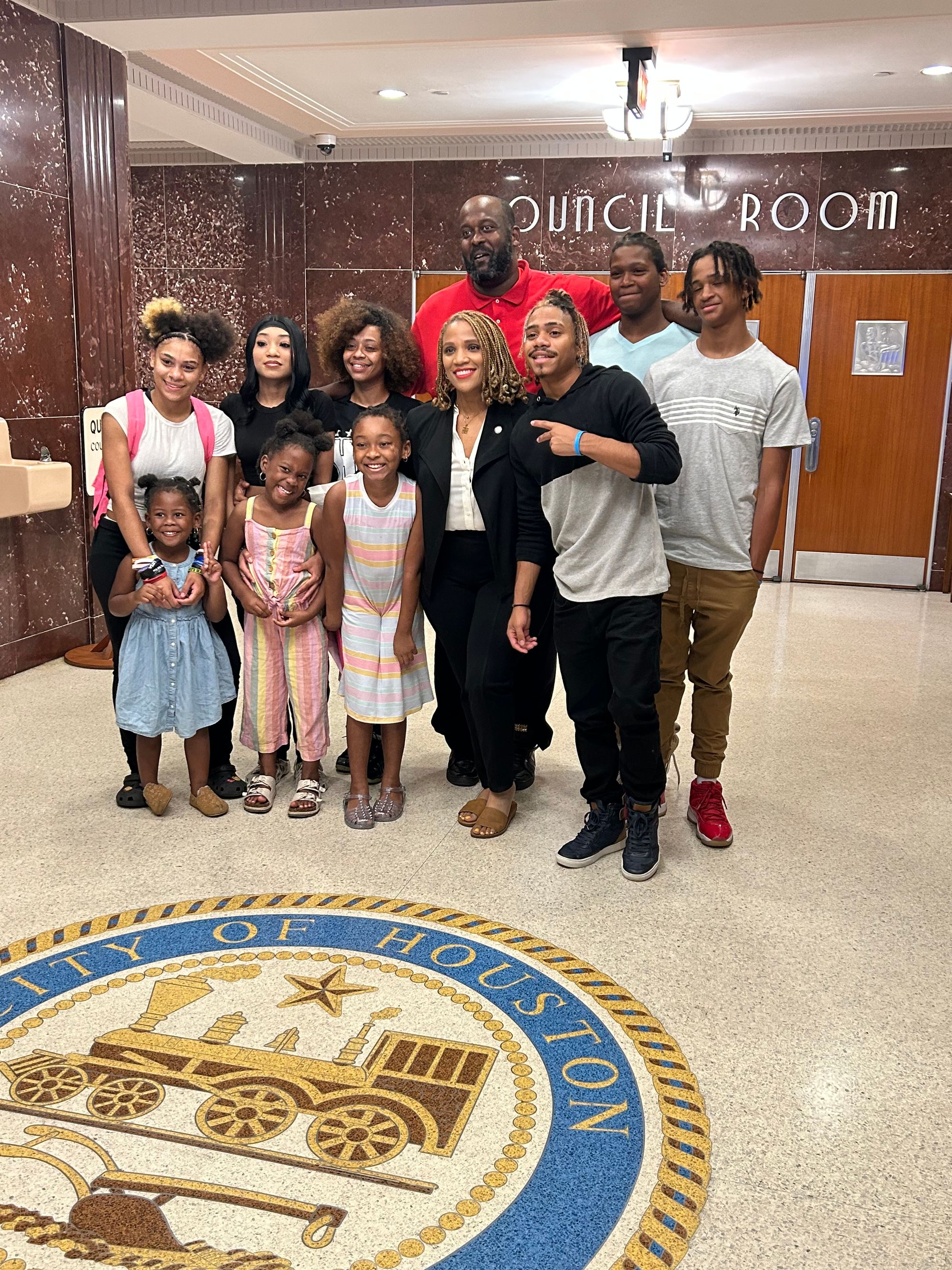
Authors
Kace’ Conaway is a legal studies major at Houston Christian University. She has always had a deep love for writing and is grateful for the opportunity to share that love with the Sharpener and its readers. She hopes her work will have a positive impact on campus and in the Sharpstown community.
Tyess Korsmo, the Sharpener's editor-in-chief, moved to Sharpstown in 2019 to earn his Master of Liberal Arts at HCU, where he now teaches English and history. He also teaches English in a maximum-security prison.
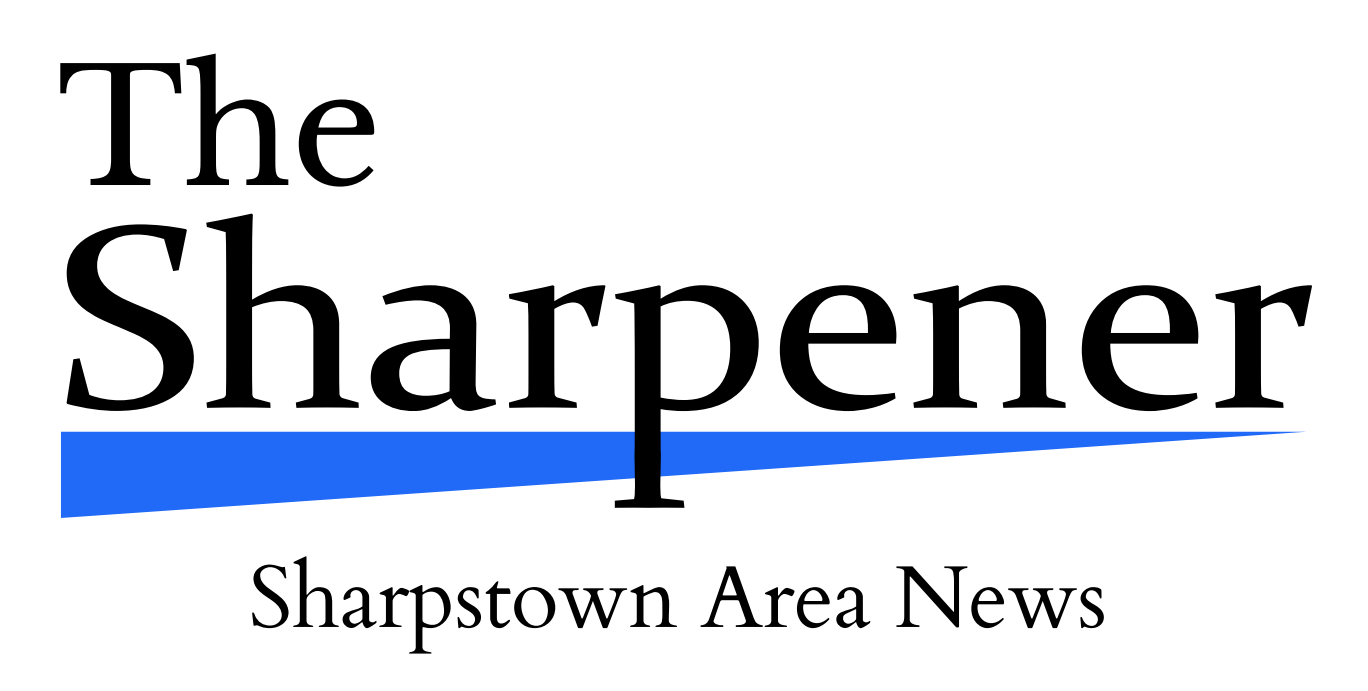
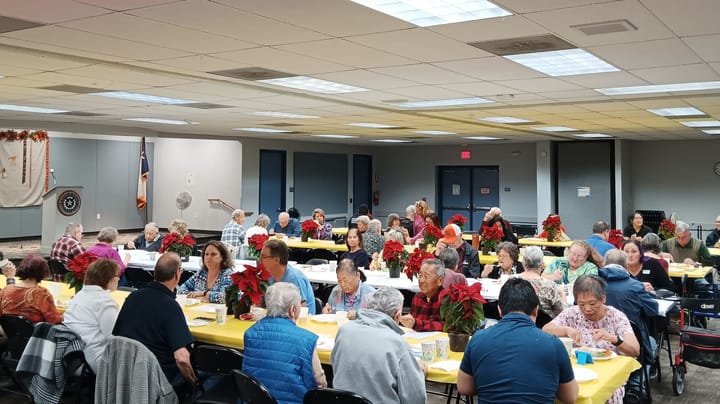
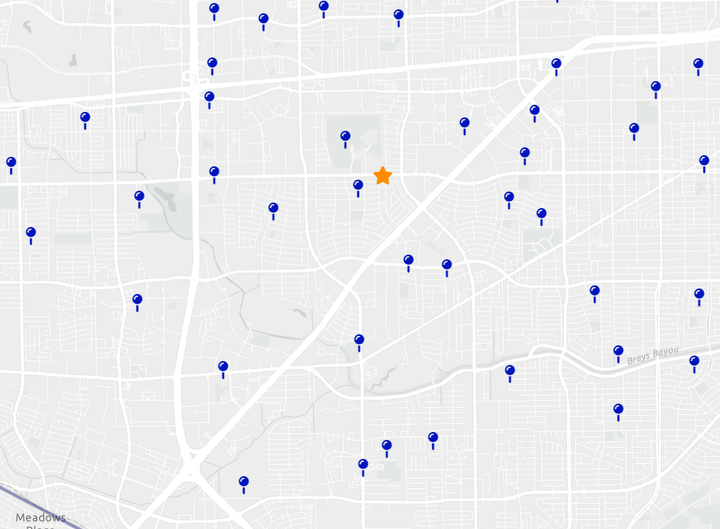
Comments ()